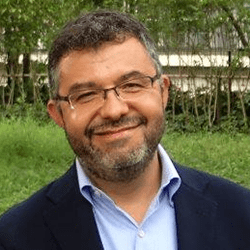How Coaching Helps Diversity and Inclusion
When I decided to work abroad, I didn’t know what kinds of problems I would face in Japan as a foreigner. At that time, 25 years ago, I had no idea what being a minority would feel like because I wasn’t a minority then. I had no idea. This is the issue with diversity and inclusion that most of the time people can relate to how minorities feel intellectually, but not emotionally.
Many companies around the world have robust programs that aim at promoting diversity and inclusion in the workplace. However, unless such programs go deeper than creating awareness, there won’t be real progress. If the topic is important for you, maybe there are things you can do to tackle the core issues, as well.
Informal Ways
As coaches, we work with HR departments and senior leaders. We can walk the talk and become role models. If we have clients from different walks of life, different ethnic or linguistic backgrounds, we can informally talk about how interesting and enriching our experience working with them is. We can mention how seeing the world through our clients’ eyes is eye opening. Through our experience, the people we talk with may see the opportunities lying ahead for them as well.
Coaching People from Minority Groups
We can proactively seek clients from minority groups. Different people have different issues and needs. It is not appropriate to make stereotypical generalizations on what minorities may need. Speaking from my experience, I encountered people who couldn’t believe they were more than capable, but actually brilliant and unique. We can work towards finding their natural talents and strengths. We can create learning assignments where they experience their brilliance.
Working with Organizations
When we do team coaching or group coaching, we can facilitate opportunities for minorities to get their voices heard. We can also work with members from the majority groups so that they also feel their voices were heard and their needs were acknowledged.
Coaching People Who Want to Improve
This group of clients will have enough self-awareness of the challenges they have. They will be curious about knowing the areas they need help with and identifying the ways they can improve themselves. It will be essential to identify their values and ideals as leaders so that they can guide themselves towards higher ideals.
Coaching People Who Think They are OK
Some clients may not be aware of their issues in embracing diversity. Administering or utilizing 360-degree surveys, asking clients to complete trainings on uncover unconscious bias, and facilitating role plays can help them become what is expected of them. Once such clients realize they had particular challenges, the rest becomes easy.
Coaching People Who Oppose Diversity
This could be a difficult assignment if clients are not willing or collaborative. The worst could be passive-aggressive behaviors and “yes, but” sentences. They may be forced to go through a “compulsory” coaching assignment because their organization is working on making some fundamental changes. However, without a genuine willingness from the client, we can find ourselves stuck. We can do three things:
- Facilitate a meeting with sponsors and make organizational expectations clear
- Create awareness for deeper personal issues and difficulties that make embracing diversity difficult
- Be creative in helping the client find their sources of motivation to align with organizational expectations.
Sometimes this group of clients may have internal conflicts. They may have conflicting feelings and value systems. Also, they may not have the means to resolve such conflicts. As coaches, we can facilitate internal conversations and help the clients work through those conflicts. Working with clients may make us uncomfortable at the beginning, but we can stay firm by believing in their potential to grow.
All the things I mentioned in this article will become more meaningful if the promotion of diversity and inclusion in society is aligned with our personal goals and values. We can still fulfill our contractual obligations if the topic is not something we genuinely care about. However, our sponsors and clients will feel compelled to work with us if we are energized by the opportunity and take the challenges wholeheartedly. One of the Japanese corporate leaders I know used to say he liked to reflect on whom and what he was spending his life for every morning. I believe making life better for minorities would be a noble cause where spending our effort and energy will be well-justified.



Meet, well written. Thank you for sharing. As I read your article, it’s empowering to notice that there are so many things I/We already do as coaches to promote D&I, and I/we can be even more intentional about it. Yan
Sorry about the auto-correct hence the error on your name
Thank you Mete for your article, it speaks about the 2 passions I have in life: coaching and D&I. It’s wonderful to read how we as professional coaches have the great opportunity to facilitate people in making a difference on these topics every day.
Eleonora Pizzutti
Mete, Great to read and hear your approach from a fellow coach with Japan specialty. 頑張って ください.
Hi Mete
I like this article for its simplicity and relevance. I also like how you touch on diversity not only in the traditional sense, but also in the area of simply ‘different’ people. many leaders struggle to appreciate the value of differences to them; their beliefs’ their perspectives; their preferences. It is vital to ensure every leader (indeed everyone) looks to what is different in others and enables that.
As a coach, often working with middle management, one of the most enlightening experiences is when I help them see the potential that is already within their teams, and explore ways to draw that out, even though it might not feel natural to the person I am coaching, to start with.
Then real value can come from them acting as true leaders of all.
Martin